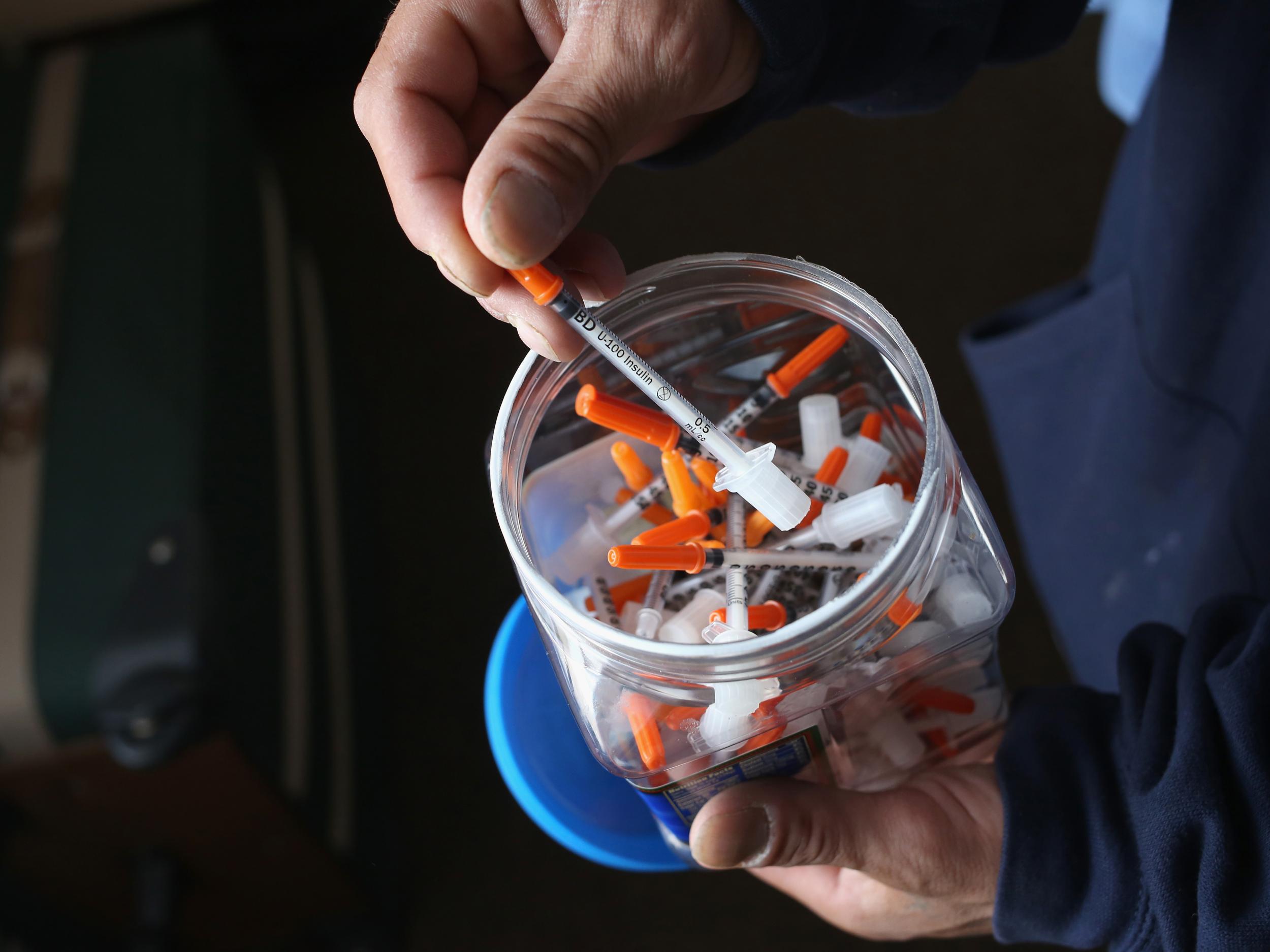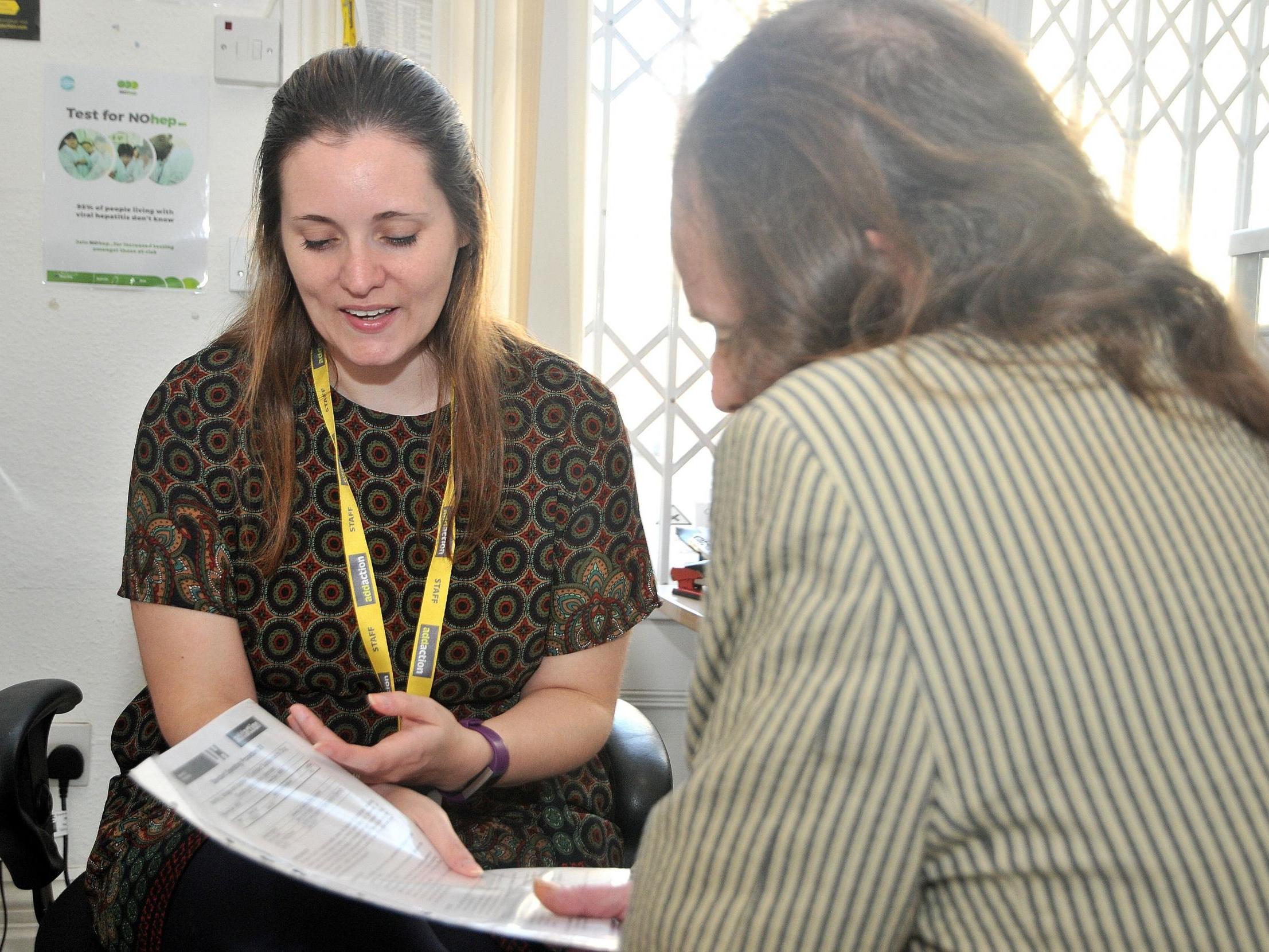UK's first drug-testing clinic approved where users can check safety of illegal substances
'This is about saving lives. We know people take drugs. We don’t have to condone it but nor should we judge people or bury our heads in the sand,' says charity Addaction

The government has granted the first licence for a drug-testing clinic where users can submit illegal substances to be checked without fear of arrest.
A pilot project aimed at saving users’ lives was launched this week in Weston-super-Mare, Somerset, after the charity Addaction secured a year-long licence from the Home Office.
The service will be trialled for a month and could be rolled out elsewhere in the country if successful.
Anyone aged 18 or over will be able to anonymously submit a sample of a substance for analysis. Tests will take about 10 minutes, during which time users will complete a short questionnaire to allow clinic staff to provide tailored harm reduction advice.
The launch of the service comes amid growing concern about the circulation of drugs containing toxic chemicals and dangerously potent substances.
A number of deaths have been linked to cocaine contaminated with the opiate painkiller fentanyl, while the parents of teenagers killed by high-strength ecstasy last year called for drug-testing facilities to be set up to prevent "needless" deaths.
“This is about saving lives,” said Roz Gittins, Addaction’s director of pharmacy. “We know people take drugs. We don’t have to condone it but nor should we judge people or bury our heads in the sand.
“It’s our job to do whatever we can to help people make informed choices about the risks they’re taking. Checking the content of drugs is a sensible and progressive way to do that.
“If people know what’s in something, they can be better informed about the potential harm of taking it.”
Pharmacists from the University of Hertfordshire will analyse the drug samples submitted at the clinic, with on-site Addaction workers then speaking to users about the results. Avon and Somerset Police have agreed not to stop and search people as they access the service.
Clinic staff have been trained by The Loop, a charity which has run similar drug-testing laboratories at festivals since 2016.
About half of the 8,000 people who had drugs tested at seven festivals last year said they would take smaller quantities after learning of their strength. Another 10 per cent chose to hand their drugs over to police.
The Loop has also previously set up pop-up clinics in Bristol and Durham, but the new service is the first to be licensed by the Home Office, which has long resisted calls to move away from criminalising drug users and embrace harm reduction strategies.
Fiona Measham, director of The Loop and professor of criminology at Durham university, said: “Three summers piloting festival testing and a year piloting city centre testing has shown that drug safety testing can identify substances of concern, productively engage with service users and reduce drug-related harm.”

Addaction had been in talks with the government about setting up the clinic for nearly a year. The charity and Hertfordshire university are jointly funding the project, and chose Weston-Super-Mare for the trial because it is a relatively small town.
Ms Gittins said she hoped the pilot could lead to similar services being set up elsewhere in the country, possibly with financial backing from the government.
"If this is something that people would like to roll out further, inevitably there will be a question about where funding for that comes from," she added.
A drug-testing service in the Netherlands receives £1m annual public funding.

A Home Office spokesman said: “The government’s approach remains clear: we must prevent illicit drug use in our communities and help those dependent on drugs to recover.
“Anyone interested in lawfully undertaking activities which include the possession, supply or production of controlled drugs (including potentially the service of drug testing) needs to apply for a licence in the normal way. They would then be subject to the usual considerations, visits and fees.
“A Home Office licence was issued so approved research could be undertaken in Addaction’s clinic in Somerset in accordance with the terms of that licence.”
Join our commenting forum
Join thought-provoking conversations, follow other Independent readers and see their replies
Comments
Bookmark popover
Removed from bookmarks